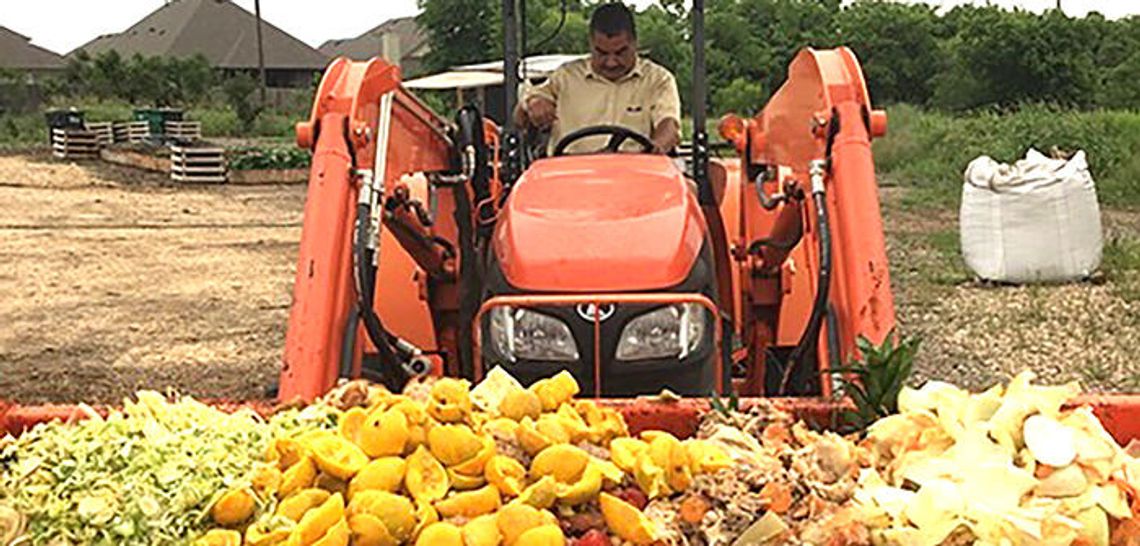Offensive odor complaints against a nearby composting business led Buda city leaders Tuesday to expand an ordinance that labels the smelly situation a nuisance.
By a 6-1 vote, the Buda City Council approved deeming “offensive odors” beyond the boundaries of a property that cause material distress, discomfort or injury a nuisance, whether within the city’s limits or 5,000 feet beyond it. Council member Evan Ture cast the lone dissenting vote.
But Peter Black, chief operating officer of GrubTubs, the business at the center of the controversy, said he was “surprised” by the ordinance as no city officials approached them about the smell issues or neighbor complaints prior to taking action. City officials, however, refute the claims, alleging they did contact GrubTubs, but couldn't take any action.
The ordinance originated because of residents’ complaints of strong odors coming from a composting business located on Old Black Colony Road. The business, which was not identified at the May 7 meeting, is located in Hays County’s jurisdiction, Buda city staff said.
Steve Hammond, a Whispering Hollow resident, said the stench that comes from the business “makes enjoying the outdoors next to impossible.”
Hammond said the odor smells like “decomposing flesh and rotting food.” Whispering Hollow resident Matt DeBow supported the ordinance and worried about the “airborne toxicity” of the area near the business and how it could impact people’s health. DeBow said he paid $250,000 for his home and he “can’t go outside” due to the smell.”
Council member Ray Bryant, who lives near the business, said he used the process of elimination to discover “what is that smell” and where it was coming from, which is a question residents have posted on social media sites.
But Ture felt the city could create more issues with the ordinance rather than solving the specific problem.
While Ture said the smell is “repugnant” and understood residents’ complaints, he also felt the ordinance wasn’t the way to address the odor problem and could open a “can of worms.” Ture said he opted for a second reading of the ordinance in order to try and alleviate the smell issue with the business.
City leaders instead voted 6-1 to pass the resolution on a first and final reading with Ture voting against it.
By taking a “shotgun approach” to the issue, Ture worried the ordinance could turn residents against those who might be composting responsibly. The ordinance, as written, looked a “little rough” for Buda and its Outdoor Capital of Texas moniker, Ture said.
While Mayor George Haehn said he had similar concerns, he also felt smaller composting efforts would not be impacted by the new ordinance.
Council member Lee Urbanovsky said most of Buda’s ordinances stem from a single “problem that was identified,” and that the rules would prevent odor issues anywhere in the city. Haehn advocated for the county to address the issue.
“This is not targeting anyone. This is trying to fix a problem,” Haehn said.
But Stephanie Hicks, a partner with GrubTubs, said they were “shocked” when they first heard of the ordinance’s passage May 8, adding it “almost reads to me like an anti-composting ordinance.”
Black said GrubTub officials had “no inkling” the ordinance was on the docket and that no one from the Whispering Hollow Homeowners Association (HOA) or the Buda City Council had formally contacted them. David Marino, Buda Communications Manager, said the city's Code Enforcement Officer contacted GrubTubs about the complaints. However, the city "couldn't do anything at the time because we didn't have the new ordinance in place."
However, several neighbors recently reached out to GrubTubs regarding smell issues, Black said.
Those issues came up after GrubTubs complied with the Texas Commission on Environmental Quality (TCEQ) roughly a month ago to move compost piles that were set up near the business’ property line. Black said GrubTubs attempted to mediate smell complaints from neighbors.
GrubTubs, which moved into the Buda area in 2018, collects food waste from restaurants in the Austin area and turns it into compost. The compost is expected to be fed to worms, which are then sold as feed to area farms.
Hicks said GrubTub owners understood the business was outside of the city limits and that the property is zoned as a working farm. Black said all items brought in from restaurants are placed in “hygienically sealed” tubs and that the company follows “all rules for composting materials” per the TCEQ. No other items, such as animal carcasses, are composted at the site.
“We know we are outside of the city limits and we’re doing our best to be good neighbors and operate with the rules and regulations out there,” Hicks said.
How the new rules could impact their business remains to be seen, Black said.
“We are still trying to figure out what it means for us,” Hicks said.
This story has been updated to reflect comments from the City of Buda on contacting GrubTubs.











